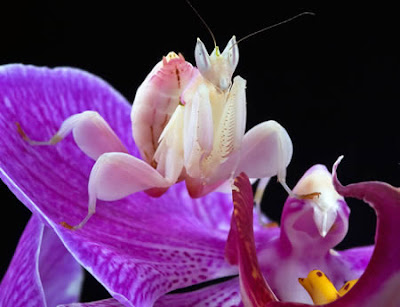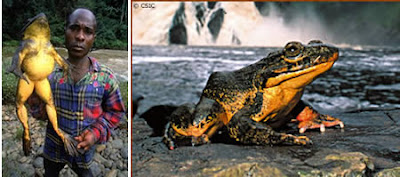The Mysterious Catatumbo Lightning

The Catatumbo Lightning (Relámpago del Catatumbo) is a fascinating natural phenomenon located on the mouth of the Catatumbo river in Venezuela. It is a cloud-to-cloud lightning that forms a voltage arc more than five kilometer high during 140 to 160 nights a year, 10 hours a night, and as many as 280 times an hour. With its cloud-to-cloud discharge intensity and great frequency, it is considered the greatest single generator of ozone in the planet and some local environmentalists hope to put the area under the protection of UNESCO.

The Mysterious Catatumbo Lightning

Freaky Tree Climbing Goats


These tree climbing goats can be found in Morocco. They only climb these specific trees to eat argan fruit which is like an olive. Farmers often follow these herds of goats to collect nuts which they spit out and make argan oil out of them. Argan oil is used in cooking and cosmetics.

Freaky Tree Climbing Goats

Freaky Vegetarian Spider

Bagheera Kiplingi, a South American species, eats leaf buds and is thought to be the only non-carnivorous spider out of about 40,000 species. Its diet includes nutritious wild acacia plants and it has no need to spin a web to catch preys.

Freaky Vegetarian Spider

Freaky Giant Camel Spider

The story of the Giant Camel Spider (Arachnid Solifugae) is told by the United States Servicemen in the Persian Gulf War and afterwards from the Iraq War. It was said that a giant camel spider crawled into the sleeping bag of a soldier, biting the man while he was asleep. Fortunately, the giant desert camel spiders native to Iraq aren't venomous. It uses its claws to catch its prey, which is never bigger than the arachnid itself.

Freaky Giant Camel Spider

Freaky Orchid Mantis

The Orchid Mantis (Hymenopus Coronatu), is a variety of flower mantis usually found in Indonesia and Malaysia. The unique bug camouflages itself in orchid flowers, waiting for other delicious bugs to prey on.

Freaky Orchid Mantis

Freaky Transparent Frog


The Glass Frog or Crystal Frog (Hyalinobatrachium Pellucidum) is called such because you can see through its transparent flesh (including its guts). This frog is endangered, so this finding is heartening for environmentalists.
From Wikipedia:
Hyalinobatrachium pellucidum, also known as the glass frog or see-through frog is a species of frog in the Centrolenidae family. The frog is named for its skin which is translucent to the point that internal organs and surfaces immediately behind the frog can be seen. It is endemic to Ecuador. Its natural habitats are subtropical or tropical moist mountains and rivers. It is threatened mostly by habitat loss, although conservation programs have begun to help save this interesting creature. This frog is about the size of a fingernail.

Freaky Transparent Frog

Largest Frog in the World

The Goliath Frog (Conraua Goliath) is the largest species of frog on Earth. It can grow up to 13 inches (33 cm) in length, and weighs up to 8 lb (3 kg). This animal has a relatively small habitat range, mainly in West Africa (near Gabon). The Goliath Frog can live up to 15 years and eats scorpions, insects and smaller frogs.

Largest Frog in the World

Smallest Frog in the World
Although higher altitude usually means larger animals, the world's smallest known frog species lives high in the Andes Mountains of southern Peru, between 9,925 and 10,466 feet.

Smallest Frog in the World

Freaky Dragon Blood Tree

The Dragon Tree (Dracaena Cinnabari) is a strange-looking, umbrella-shaped tree native to the Socotra archipelago. It is also referred to as the Dragon Blood Tree and Socotra Dragon Tree. Its red sap was the dragon's blood of the ancients, sought after as a medicine and a dye. It was first formally described by Isaac Bayley Balfour in 1882.

Freaky Dragon Blood Tree









